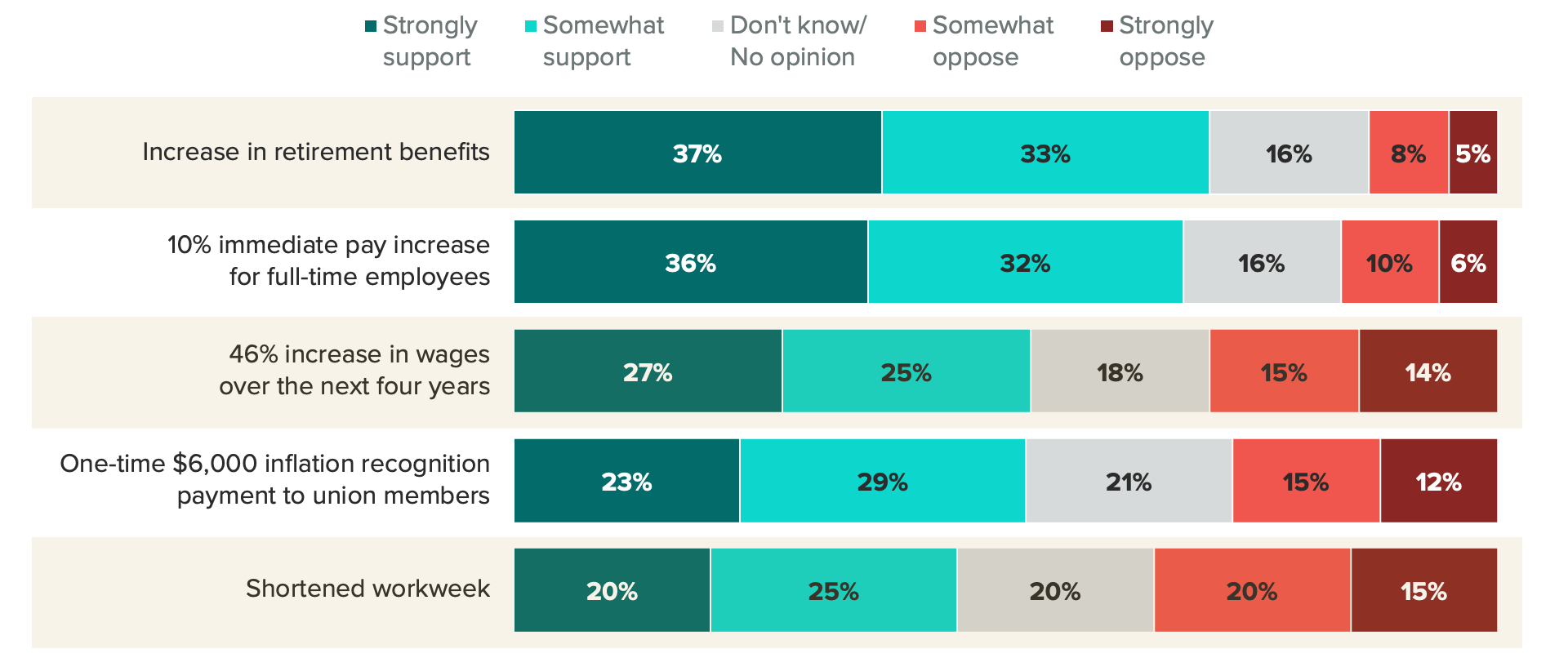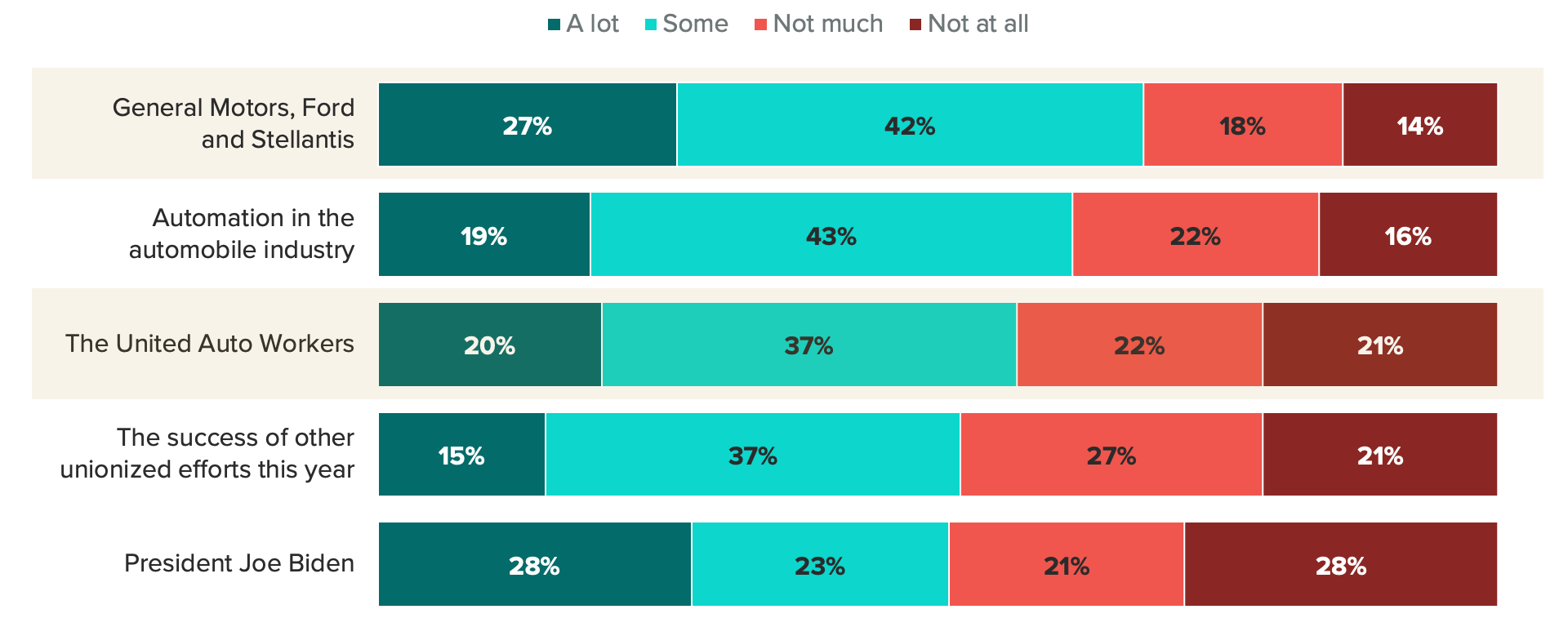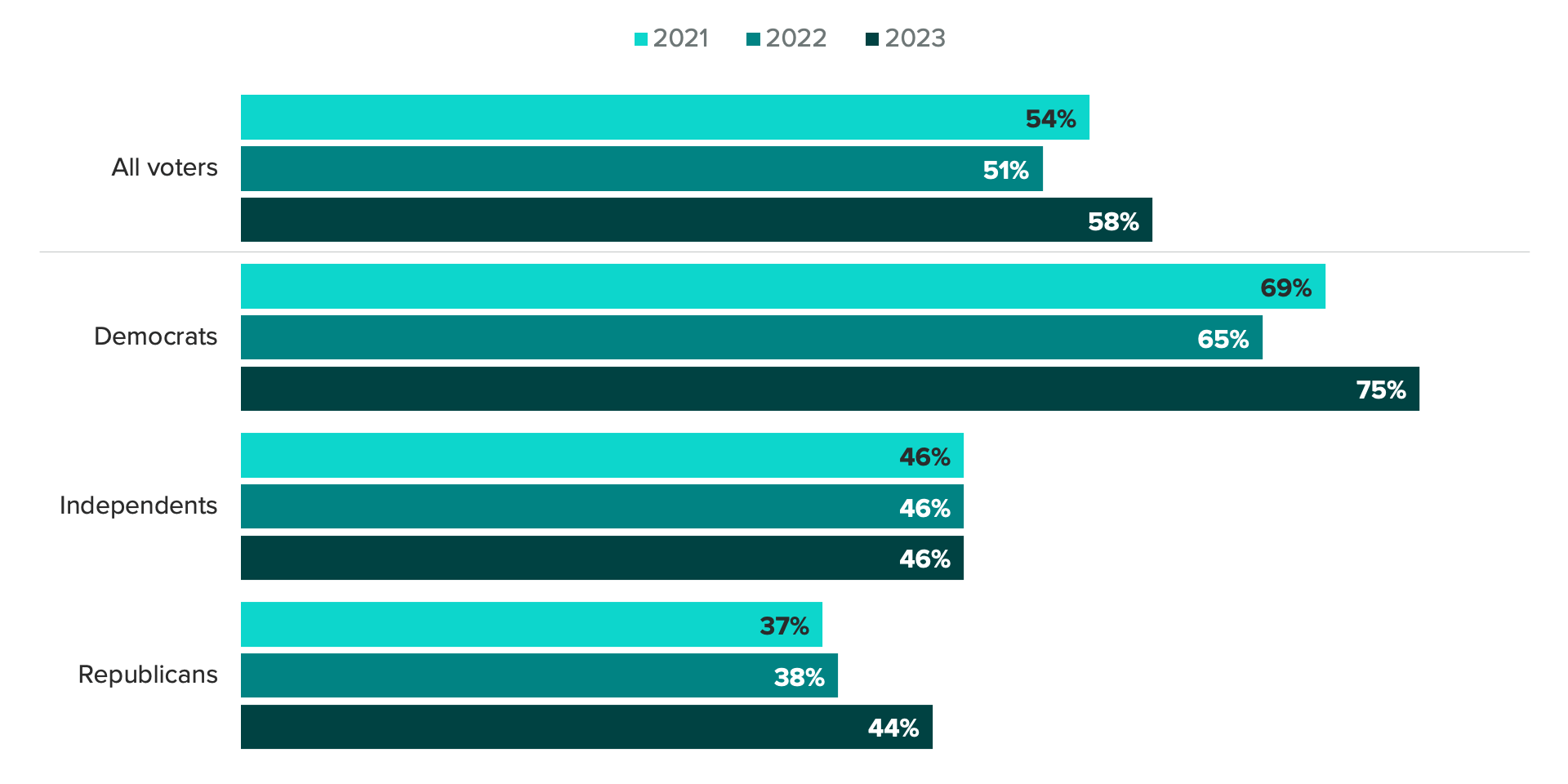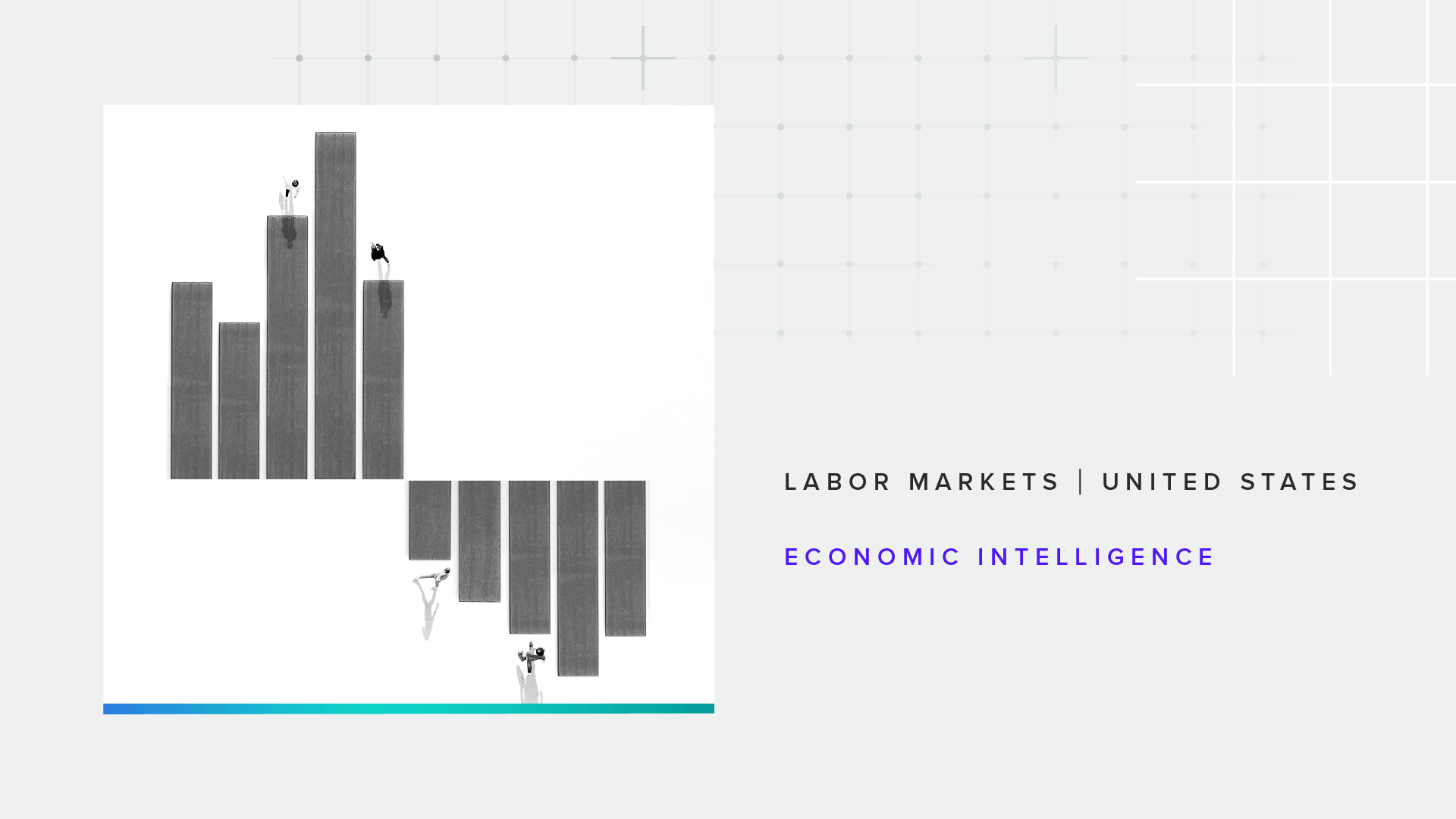UAW Strike Would Be Relatively Popular With Americans

Key Takeaways
If the United Auto Workers union decides to strike this week, U.S. adults would support it by a 2-to-1 margin, according to a new Morning Consult survey.
Yet news about the potential strike is not breaking through to many Americans, giving automakers room to shape public opinion by focusing on the union’s most aspirational demands, such as a shortened workweek, which was most divisive according to the survey.
More generally, our trend data brings good news for organized labor: Support for unions among the U.S. electorate is up since last year.
Sign up to get the latest data and analysis on how business, politics and economics intersect around the world.
As the United Auto Workers union barrels toward a Sept. 15 labor strike against America’s Big Three automakers General Motors, Ford and Stellantis, a new Morning Consult survey finds that public opinion is largely on labor’s side despite its demands for an effective 46% pay increase and a shortened workweek, which industry critics have panned as unrealistic.
A Slim Majority of U.S. Adults Would Support a UAW Strike This Week

By a 2-to-1 margin, U.S. adults surveyed said they would support a Sept. 15 strike by the UAW if they are unable to reach an agreement with the Big Three.
The potential strike, which would go into effect at 11:59 p.m. on Sept. 14, may be generating lots of attention among industry watchers, but it’s not yet breaking through to Americans: Only 14% have heard “a lot” about it.
The same share (14%) of U.S. adults says they are very concerned about the strike, and slightly more (20%) believe it’s very likely to happen.
So while support for a strike is ample, it’s also clear that relatively few Americans are paying close attention to the talks, which may help explain why they’d back a strike even though not all of the union’s proposals are as popular as industry’s.
UAW’s Push for a Shortened Workweek Is Least Popular

The UAW’s push to be compensated for a 40-hour work week that only included 32 hours of labor was the most divisive proposal among the public, with 46% in favor and 35% opposed. The other provision that drew at least 30% opposition was the union’s push for an effective 46% pay raise, though a 53% majority nonetheless supported it.
The union’s most popular demand is its push for an increase in retirement benefits.
Last week’s counteroffer from General Motors for a 10% immediate pay raise and a one-time payment meant to cover inflation costs were also backed by majorities of U.S. adults.
And though a slim majority of U.S. adults back a strike by the UAW, the survey also makes clear that labor wouldn’t be blameless if both sides are unable to reach an agreement.
If a Strike Happens, Both Sides Will Be Blamed

While 68% of U.S. adults say they’d blame the Big Three automakers for a labor strike on Sept. 15, 56% would blame the UAW.
A slim majority said President Joe Biden, who said last week that he didn’t expect a strike to happen, would face some blame if it were to occur, while 62% would attribute the strike to the rise of automation in U.S. manufacturing.
Specific demographics at scale: Surveying thousands of consumers around the world every day powers our ability to examine and analyze perceptions and habits of more specific demographics at scale, like those featured here.
Why it matters: Leaders need a better understanding of their audiences when making key decisions. Our comprehensive approach to understanding audience profiles complements the “who” of demographics and the “what” of behavioral data with critical insights and analysis on the “why.”
Another 52% said the success of other unionized efforts in 2023 would factor into the occurrence of a labor strike by the UAW.
The strongest labor market in years has emboldened workers as they push for better wages and benefits, and Morning Consult trend data suggests they’re also growing more popular in the eyes of U.S. voters.
Support for Labor Unions Is Up Since Last Year

Almost 3 in 5 U.S. voters (58%) said they generally support labor unions, up from 51% last year, while only about 1 in 5 voters oppose unions. The uptick in backing is largely driven by Democratic voters, who measured a 10-percentage-point increase in support for unions.
The bottom line
While public opinion looks to generally be on the UAW’s side at this moment, it’s also clear that relatively few are paying attention, providing some room for automakers to shape public opinion by focusing on the UAW’s most aspirational demands.
Cameron Easley is Morning Consult’s head of U.S. Political Analysis. He has led Morning Consult's coverage of U.S. politics and elections since 2016, and his work has appeared in The New York Times, The Wall Street Journal, The Washington Post, Politico, Axios, FiveThirtyEight and on Fox News, CNN and MSNBC. Cameron joined Morning Consult from Roll Call, where he was managing editor. He graduated from the University of North Carolina at Chapel Hill. Follow him on Twitter @cameron_easley. Interested in connecting with Cameron to discuss his analysis or for a media engagement or speaking opportunity? Email [email protected].


